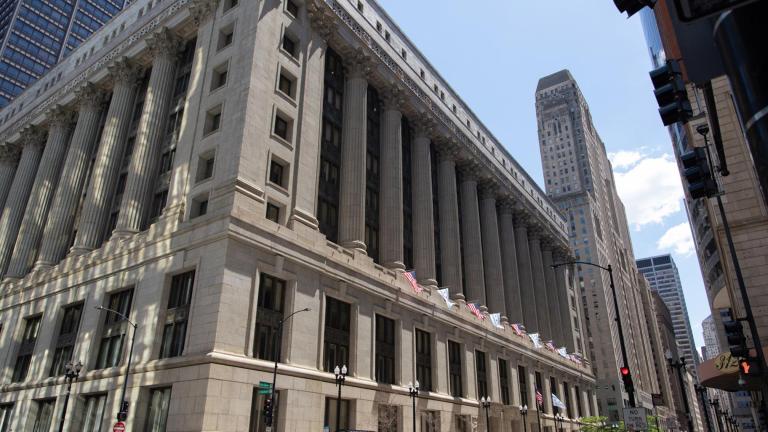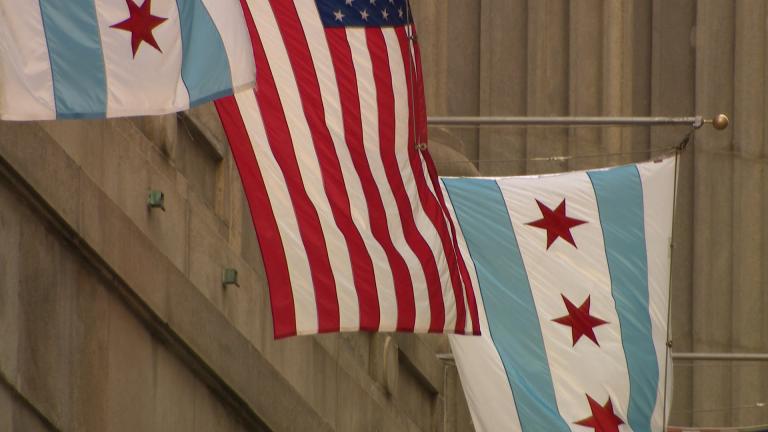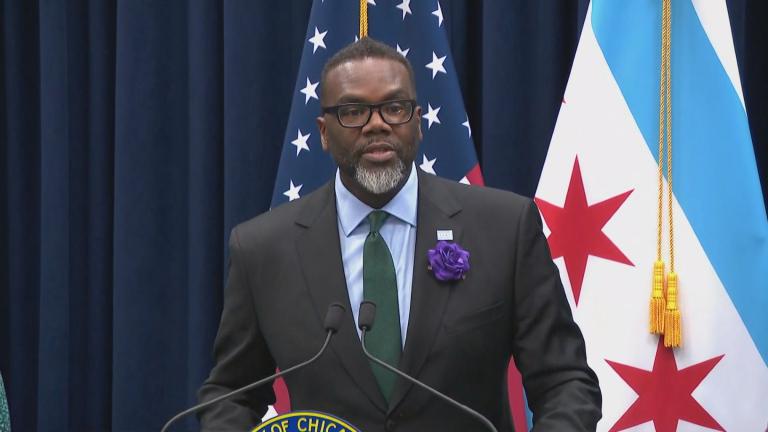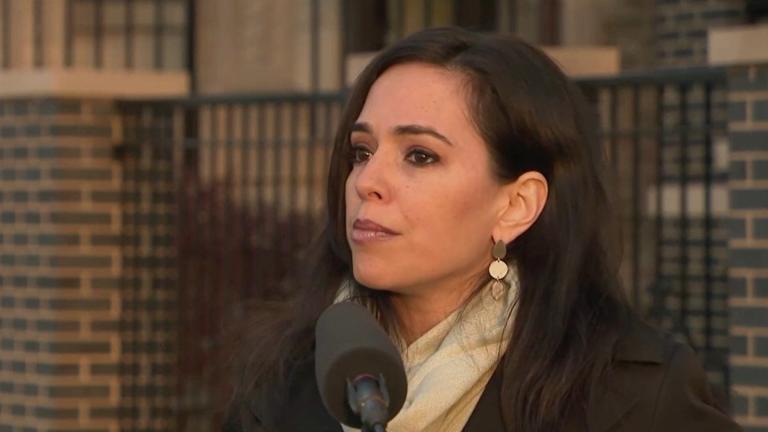Mayor Lori Lightfoot faces a divided City Council determined to help shape the city’s response to the coronavirus pandemic that has likely created a financial crisis for Chicago, four aldermen said Thursday during an interview for “Chicago Tonight.”
The 50 members of the City Council narrowly approved an ordinance April 24 to grant the mayor emergency powers to respond to the pandemic by spending funds without the approval of the City Council during a raucous and at times profane meeting.
“Robust, engaged” debates will be the norm from now on, said Ald. Gilbert Villegas (36th Ward), who serves as Lightfoot’s floor leader.
“The days of 50-0 and 49-1 are over,” Villegas said. “What we are seeing now is a very engaged legislative branch, which is going to be good for the city of Chicago and good for policy.”
Ald. Matt Martin (47th Ward) said aldermen must have a say in how federal relief funds are spent in response to the pandemic, which is disproportionately hurting Chicago’s black and Latino communities.
Martin is a member of the Progressive Reform Caucus, which called on Lightfoot to adopt a more “collaborative approach” in her response to the pandemic in a statement released Tuesday.
“We need to do a better job of ensuring that we are not just getting information in a passive way but that we have a dynamic opportunity to help shape the course of legislation,” Martin said.
While it is not yet clear what toll the pandemic will take on the city’s budget, it is likely to be severe — and could leave Lightfoot no choice but to ask aldermen to take difficult votes that could imperil their political futures.
Lightfoot said Thursday that raising property taxes would be “a last resort” — after the “last, last, last resort” of layoffs and furloughs of city staff, which she said would be “demoralizing” to the city’s workforce.
Chicago finance officials are monitoring the city’s budget, but are not yet prepared to estimate the size of the budget gap facing the city in 2021, Lightfoot said. Before the pandemic hit, city officials expected the 2021 budget deficit to approach $1 billion.
City government should act as a “catalyst to spur economic growth,” Lightfoot said.
“But we are not going to spend beyond our means,” Lightfoot said.
Ald. Scott Waguespack (32nd Ward) said he was hopeful that revenue from the city’s amusement and sales taxes would rebound in the fall, stemming the tide of red ink now inundating the city’s budget.
Waguespack, the chairman of the City Council’s Finance Committee and a close ally of the mayor, said the city has a bit of a buffer from the worst of the financial crisis caused by the pandemic because the city saved $100 million more than expected at the beginning of the year by refinancing a large amount of debt.
But Lightfoot will have no choice to look to Springfield for help, Waguespack said.
Lightfoot has asked the General Assembly to allow the City Council to change the Real Estate Transfer Tax from a flat fee to a graduated levy, allowing properties worth more than $3 million to pay a higher fee in an effort to raise approximately $100 million in new revenue.
Villegas said he was working with Rules Committee Chair Ald. Michelle Harris (8th Ward) to develop “new etiquette” for the virtual City Council meetings. The meeting on April 24 descended into chaos, and several aldermen were heard using profanity.
“We have to remember that there are a lot of people staying at home, and so as a result of that, they may have some extra time to look at a City Council (meeting),” Villegas said. “What we want to do is to make sure that we are doing the work of the people, but that we are doing it in a respectful manner.”
Contact Heather Cherone: @HeatherCherone | (773) 569-1863 | [email protected]







